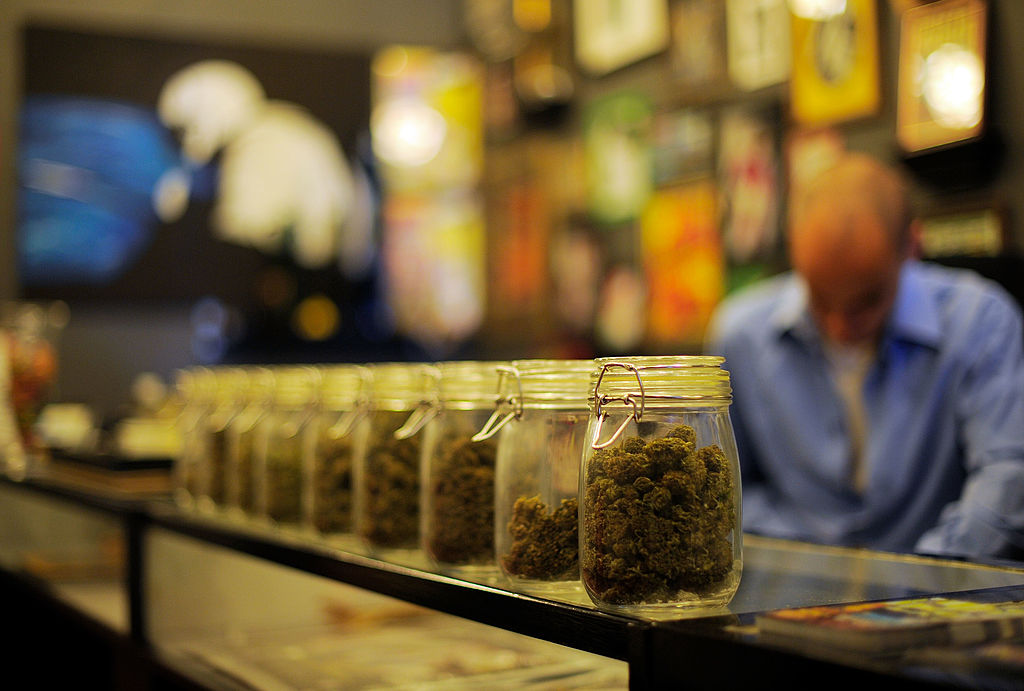
Marijuana is more mainstream than it’s ever been. A growing number of states are legalizing it medicinally and recreationally; millions of people are vaping products that contain the compound THC (potentially to the detriment of their health); and non-psychoactive CBD is in everything from beauty products to seltzer water. This spring, Google searches for CBD exceeded searches for buzzy health topics like acupuncture, apple cider vinegar and meditation, according to a recent JAMA Network Open analysis.
The problem: Even though many consumers turn to cannabis compounds, known as cannabinoids, to soothe issues like depression and anxiety, these substances don’t seem to do much for mental health, according to a new research review published in the journal Lancet Psychiatry.
A team of Australian researchers analyzed the results of 83 prior studies that looked at medicinal cannabinoids’ effects on mental health and neurological conditions, including depression, anxiety, Tourette syndrome, ADHD, PTSD and psychosis. While they found positive results here and there—some studies showed evidence that pharmaceutical CBD-THC could lessen symptoms of anxiety and certain symptoms of PTSD, while another found limited benefits from taking CBD for psychosis—overall, the literature provided “little evidence for the effectiveness of pharmaceutical CBD or medicinal cannabis for the treatment of any of these mental health disorders,” the authors write.
Even the positive results may not be directly linked to cannabis. The authors note that medicinal marijuana is often prescribed to patients for whom depression and anxiety are secondary conditions—that is, a chronic disease may be their “primary” diagnosis—which makes it hard to see how, exactly, the drug is helping. Marijuana could, for example, lessen chronic pain or nausea, which then leads to a reduction in mental health symptoms. That’s a good outcome, of course, but it doesn’t necessarily mean that marijuana is directly treating depression or anxiety.
Plus, many people aren’t using pharmaceutical-grade cannabinoids, and a body of research suggests non-medicinal cannabis use can worsen mental health symptoms, the authors note. The THC and CBD products available to most consumers are also notoriously under-regulated. Marijuana’s legality varies from state to state, creating an active black and gray market, and most cannabis-derived products do not fall under the Food and Drug Administration’s purview. (The FDA did approve an epilepsy treatment containing CBD last year.) Though the agency tries to step in when brands make unauthorized health claims or inaccurately label their products, as many do, it’s hard to keep pace with the number of products hitting the market.
The review also exposed just how little research has been done on cannabinoids and mental health. The researchers struggled to find studies specifically looking at CBD and depression and anxiety, for example, even though many people use it to self-treat that condition.
While some people may see a positive effect—either placebo or otherwise—after using cannabinoids, the evidence to support their therapeutic use for mental health problems just isn’t there yet, as the latest review shows.
More Must-Reads from TIME
- Cybersecurity Experts Are Sounding the Alarm on DOGE
- Meet the 2025 Women of the Year
- The Harsh Truth About Disability Inclusion
- Why Do More Young Adults Have Cancer?
- Colman Domingo Leads With Radical Love
- How to Get Better at Doing Things Alone
- Michelle Zauner Stares Down the Darkness
Write to Jamie Ducharme at jamie.ducharme@time.com